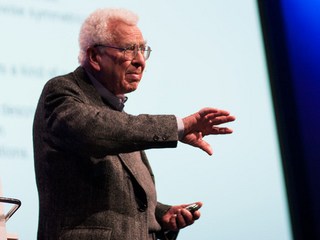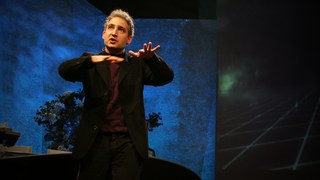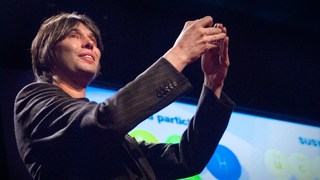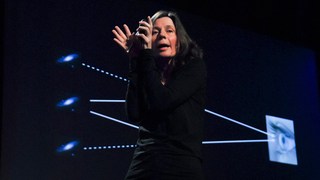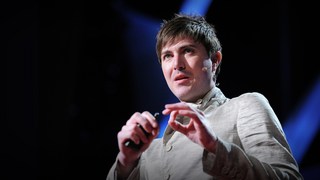Activities
Deepen your understanding of The Edge of Knowledge with these carefully crafted educational exercises that let you get the most out of this TED Studies subject.
Activity 1
Starting with Sir Isaac Newton's laws of mechanics and gravitation, explore the key ideas in fundamental physics, many of which have been highlighted in these TEDTalks. Present what you've learned in the form of a script for a radio or television program, a syllabus (complete with suggested readings) for a course you might design, or an interactive timeline (how far into the past can you extend your timeline?) Here are some names to get you started:
- James Joule, John Dalton & Nicolas Léonard Sadi Carnot
- Ludwig Boltzmann & Josiah Willard Gibbs
- Michael Faraday, André-Marie Ampère & James Clerk Maxwell
- Max Planck
- Ernst Rutherford
- Albert Einstein
- Erwin Schrödinger & Werner Heisenberg
- Paul Dirac & Wolfgang Pauli
- Edwin Hubble, Arno Penzias & Robert Wilson
- Sheldon Glashow, Steven Weinberg & Adbus Salam
- Peter Higgs
Activity 2
Write a short science fiction story incorporating any of the following ideas from fundamental science:
- Quantum mechanics allows objects to be in two places at once.
- Einstein's theories tell us that time travel into the future is possible (although time travel into the past is forbidden).
- Einstein's theories predict that space and time are malleable.
- Matter is largely empty space.
- The Many Worlds interpretation of quantum mechanics predicts multiple realities.
- Models of the universe require the existence of dark energy.
- Anti-matter exists and with current technology it can be produced and stored in small quantities.
- String theory requires the existence of extra spatial dimensions.
Activity 3
How much money does your country invest in fundamental science as a percentage of GDP? How does this expenditure compare with other countries? What are the arguments against increased spending on basic research, and what do you think of them? Create an infographic to communicate the data, then discuss the impact of fundamental science and whether the level of spending is justified. Good sources include:
- Cox, B (Presenter) and TED (Producer. (2011). Why we need the explorers [Video].
- Baden, D. (2012, December 13). Why mustn't we let fundamental science fall off a cliff? Ask Siri. Center for American Progress / Science Progress.
- Hand, E., Mole, B., Morello, M., Tollefson, J., Wadman, M., and Witze, A. (2013, April 16). A back seat for basic science. Nature News.
- The Guardian: Science funding crisis (Directory of relevant articles).
- National Science Foundation: International Research and Development Data.
- OECD: Research and Development Statistics.
- dos Remedios, C. (2006). The value of fundamental research. Discussion paper prepared for the International Union of Pure and Applied Biophysics.
- de la Pena, J.A., Berlucchi, G., Bokensberg, A., Moreau, N., dos Remedios, C., (2004). The value of basic research [Position statement]. International Council for Science.
